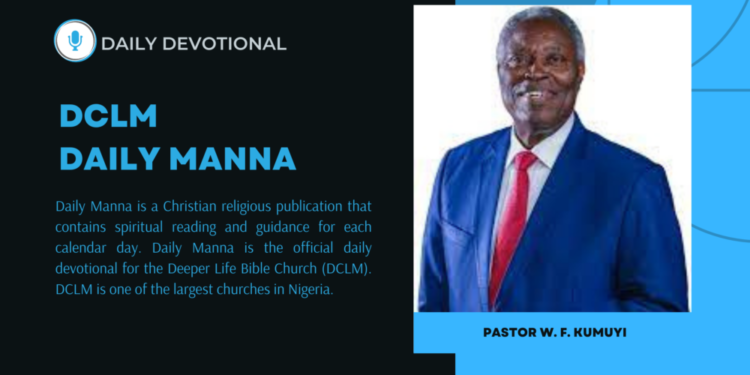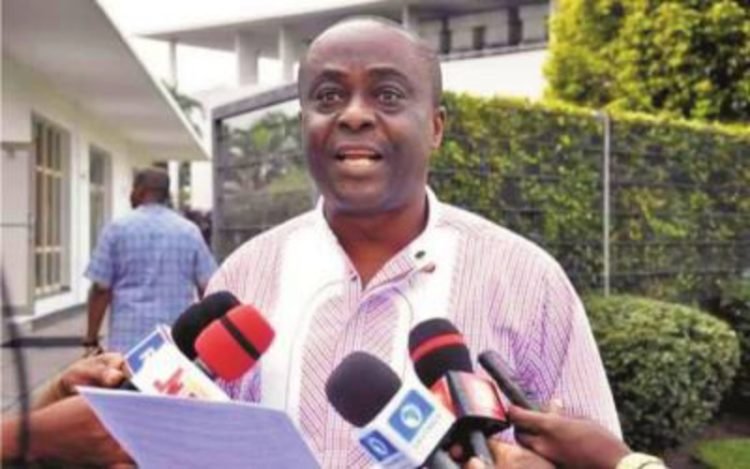DCLM Daily Manna 2025: DCLM Daily Manna 19 July 2025: The Time of the Promise
Text: Acts 7:17-35 (KJV)
“But when the time of the promise drew near which God had sworn to Abraham, the people grew and multiplied in Egypt 18 till another king arose who did not know Joseph. 19 This man dealt treacherously with our people, and oppressed our forefathers, making them expose their babies, so that they might not live. 20 At this time Moses was born, and was well pleasing to God; and he was brought up in his father’s house for three months. 21 But when he was set out, Pharaoh’s daughter took him away and brought him up as her own son. 22 And Moses was learned in all the wisdom of the Egyptians, and was mighty in words and deeds.
23 “Now when he was forty years old, it came into his heart to visit his brethren, the children of Israel. 24 And seeing one of them suffer wrong, he defended and avenged him who was oppressed, and struck down the Egyptian. 25 For he supposed that his brethren would have understood that God would deliver them by his hand, but they did not understand. 26 And the next day he appeared to two of them as they were fighting, and tried to reconcile them, saying, ‘Men, you are brethren; why do you wrong one another?’ 27 But he who did his neighbor wrong pushed him away, saying, ‘Who made you a ruler and a judge over us? 28 Do you want to kill me as you did the Egyptian yesterday?’ 29 Then, at this saying, Moses fled and became a dweller in the land of Midian, where he had two sons.
30 “And when forty years had passed, an Angel [a]of the Lord appeared to him in a flame of fire in a bush, in the wilderness of Mount Sinai. 31 When Moses saw it, he marveled at the sight; and as he drew near to observe, the voice of the Lord came to him, 32 saying, ‘I am the God of your fathers—the God of Abraham, the God of Isaac, and the God of Jacob.’ And Moses trembled and dared not look. 33 ‘Then the Lord said to him, “Take your sandals off your feet, for the place where you stand is holy ground. 34 I have surely seen the oppression of My people who are in Egypt; I have heard their groaning and have come down to deliver them. And now come, I will send you to Egypt.” ’
35 “This Moses whom they rejected, saying, ‘Who made you a ruler and a judge?’ is the one God sent to be a ruler and a deliverer by the hand of the Angel who appeared to him in the bush.
KEY VERSE: (Acts 7:17). But when the time of the promise drew nigh, which God had sworn to Abraham, the people grew and multiplied in Egypt.
Booker T. Washington recalls a story of an ex-slave from Virginia who had made a contract with his master before the Emancipation Proclamation, agreeing to buy himself by paying off his debt over time. Despite being freed by the proclamation, the ex-slave felt obligated to honour his agreement with his former master. He eventually paid off his debt, even though he was not legally bound to do so, as a matter of personal integrity and commitment. This act of fulfilling his promise was important to him, as he believed he could not truly enjoy his freedom until he had settled his debt. The ex-slave’s story exemplifies a strong sense of honour and integrity, showing the importance of keeping one’s word and honouring commitments, even in the face of adversity and changing circumstances.
Our passage forms part of Stephen’s defence before the Sanhedrin on the false accusation levelled against him bordering on blasphemy against God, the temple, and the Mosaic Law. His preaching had offended the synagogue of the Libertines (Jews who had been taken captive by the Romans in war and later set free and possibly had a separate synagogue in Jerusalem). They were not “able to resist the wisdom and the spirit by which he spake” (Acts 6:10,12); they summoned him before the Jewish council. Stephen thus began his speech by tracing the historical relationship which existed between God and Abraham (verses 1-8), Joseph (verses 9-19), Moses (verses 20-44) and David (verses 45-47).
Notably, narrating how God used Moses to deliver the Israelites, which forms the main thrust of our discourse, Stephen opined that the deliverance occurred when God needed to fulfil His promise to Abraham. This gives a clear testimony of God’s faithfulness and sovereignty. He honours His word more than His name! It means that despite the continued failures of His chosen people and the changing events in the world, God was working out His plan for His people.
Therefore, when faced with challenges, we should also remember His promises of deliverance, salvation, prosperity, etc.
THOUGHT FOR THE DAY: God does not act late; He acts at the right time.
THE BIBLE IN ONE YEAR: 1 Chronicles 24-25
Daily Manna 19 July 2025














